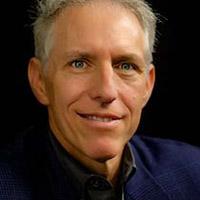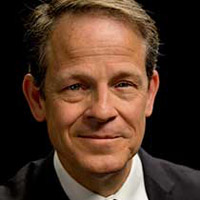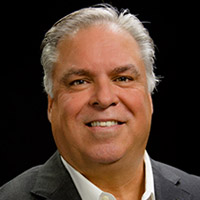Asking for Help Is Not a Sign of Weak Leadership

Can leaders be strong and humble at the same time? Is it possible for a leader to command respect if he or she has to ask for help? For many years, asking for help was considered a sign of weakness. Leaders were expected to know everything and be capable of doing anything. If a leader had to ask for help, then most likely he or she wasn’t really able to lead.
However, the world has changed and leadership is not viewed the same way it used to be. Organizations, leaders, and employees alike all recognize that the accepted standards for “good leadership” have changed.
Leaders Are Human, Too
No longer do leaders have to be super human. It’s okay to fail. It’s okay to not have all the answers. It’s okay to need help and ask for it. Good leaders know that asking for help is not a sign of weakness, but rather a sign of strength.
In fact, when leaders can’t admit and accept their weaknesses, that lack of humility actually becomes an obstacle, which hinders progress and success. If a leader thinks he or she can do something that they actually can’t, they end up hurting the organization much more. That’s why having humility in leadership is so important.
Humility Is the Key
When leaders are not humble enough to accept their weaknesses, they will not be able to connect with those they lead. Connecting with employees is huge in the current business world. If employees don’t feel engaged and connected to their leaders they’ll have a much harder time respecting or following them.
Obviously, this is not a successful environment for anyone and no one will succeed. Therefore it’s important for all leaders to accept their weaknesses. Weaknesses do not make you weak. They make you human.
Accepting Weaknesses Helps Build Strengths
By learning to ask others for help, leaders can grow and learn like everyone else. When leaders ask for help they become more relatable. They demonstrate that they don’t think they’re better than their employees.
When leaders share their vulnerabilities and ask for help to overcome them, they can gain new perspective. This allows them to grow and develop new strengths. And that helps them become better leaders, which in turn, helps the organizations they work for.
It’s Okay to Ask for help
If you want to become a better leader, you need to start by showing humility. Accept that fact that you are human and that you have weaknesses that go along with your strengths. When you don’t know the answer to something ask someone who might. When you’re not sure how to do something seek advice. When you need help, ask for it.
Every leader needs helps from time to time. Those who are humble enough to ask for help are more likely to be good leaders. Those who are afraid to ask for assistance will only hurt themselves more and the companies they work for.
We hope you found this article about “Asking for Help Is Not a Sign of Weak Leadership” helpful. If you have questions or need expert tax or family office advice that’s refreshingly objective (we never sell investments), please contact us or visit our Family office page or our website at www.GROCO.com. Unfortunately, we no longer give advice to other tax professionals gratis.
To receive our free newsletter, contact us here.
Subscribe our YouTube Channel for more updates.

Alan Olsen, is the Host of the American Dreams Show and the Managing Partner of GROCO.com. GROCO is a premier family office and tax advisory firm located in the San Francisco Bay area serving clients all over the world.
Alan L. Olsen, CPA, Wikipedia Bio

GROCO.com is a proud sponsor of The American Dreams Show.

The American Dreams show was the brainchild of Alan Olsen, CPA, MBA. It was originally created to fill a specific need; often inexperienced entrepreneurs lacked basic information about raising capital and how to successfully start a business.
Alan sincerely wanted to respond to the many requests from aspiring entrepreneurs asking for the information and introductions they needed. But he had to find a way to help in which his venture capital clients and friends would not mind.
The American Dreams show became the solution, first as a radio show and now with YouTube videos as well. Always respectful of interview guest’s time, he’s able to give access to individuals information and inspiration previously inaccessible to the first-time entrepreneurs who need it most.
They can listen to venture capitalists and successful business people explain first-hand, how they got to where they are, how to start a company, how to overcome challenges, how they see the future evolving, opportunities, work-life balance and so much more..
American Dreams discusses many topics from some of the world’s most successful individuals about their secrets to life’s success. Topics from guest have included:
Creating purpose in life / Building a foundation for their life / Solving problems / Finding fulfillment through philanthropy and service / Becoming self-reliant / Enhancing effective leadership / Balancing family and work…

MyPaths.com (Also sponsored by GROCO) provides free access to content and world-class entrepreneurs, influencers and thought leaders’ personal success stories. To help you find your path in life to true, sustainable success & happiness. It’s mission statement:
In an increasingly complex and difficult world, we hope to help you find your personal path in life and build a strong foundation by learning how others found success and happiness. True and sustainable success and happiness are different for each one of us but possible, often despite significant challenges.
Our mission at MyPaths.com is to provide resources and firsthand accounts of how others found their paths in life, so you can do the same.
The Business of Banking | Steve Tessler
About Steve Tessler Stephen Tessler, a resident of Oakland; has served as an Executive Vice President and Director of Sales of the Bank since 2007. Previously, Mr. Tessler served as a Manager of Business Development and Marketing for Diablo Valley Bank. Mr. Tessler has a degree from San Jose State & Golden Gate University.…
The Tech Museum of Innovation | Tim Ritchie
About Tim Ritchie Tim Ritchie has transformed The Tech Museum of Innovation into a vital community resource that excites and engages people of all ages with programs that help them discover their own problem-solving power. Under Ritchie’s leadership, The Tech has developed new partnerships with schools, created new teacher training programs, and increased its…
Demand Acceleration | Rajiv Parikh
About Rajiv Parikh Rajiv Parikh is the CEO of Position, an integrated digital marketing firm that drives brand visibility and new customer acquisition for technology-driven brands. Position² has operations in the US and Asia with clients from around the world. Their 200 person team combines advertising, marketing, product & technology expertise. The company is…
Building Communities and Balance In Life | John Dutra
About John Dutra John J. Dutra was appointed Chief Executive Officer in 2007. As CEO, he is committed to building on the company’s unrivaled reputation of partnering with local entities, political leaders, property owners and builders. John strongly believes in providing quality, personal integrity and a high level of service in all endeavors. From…




